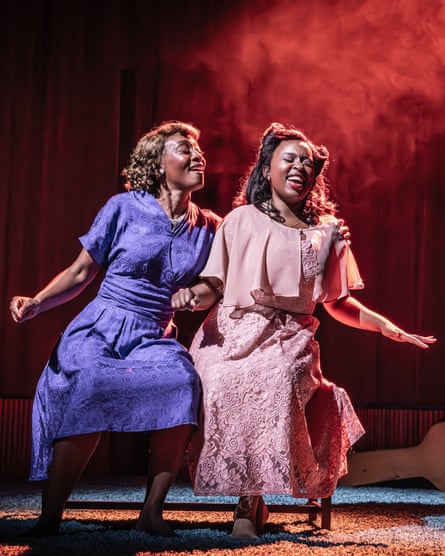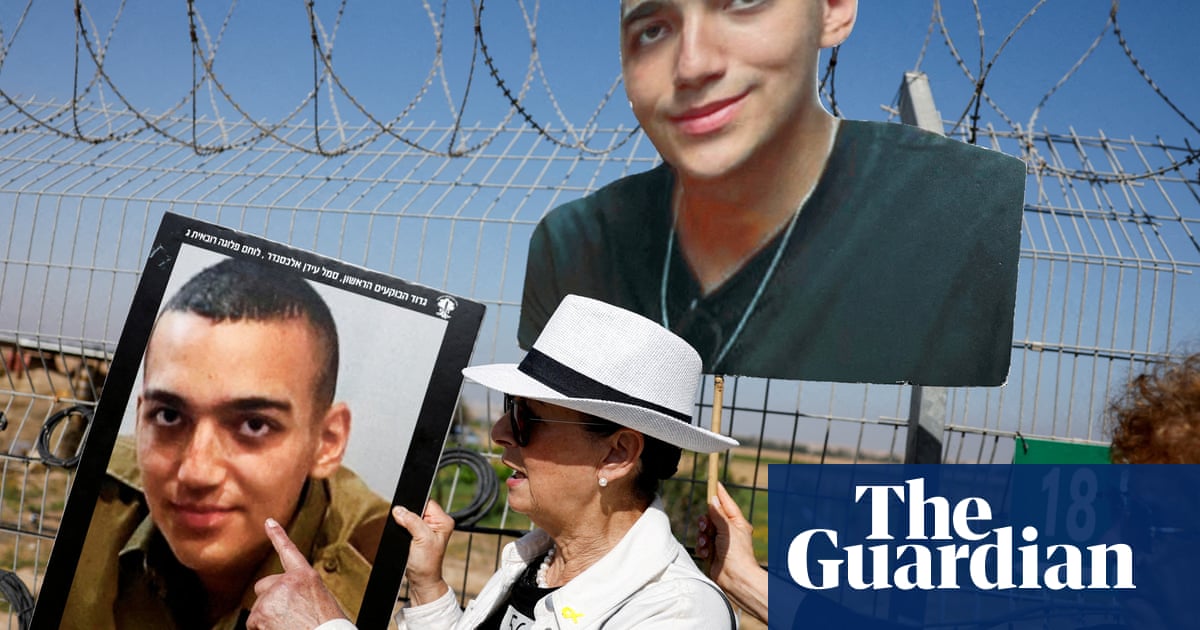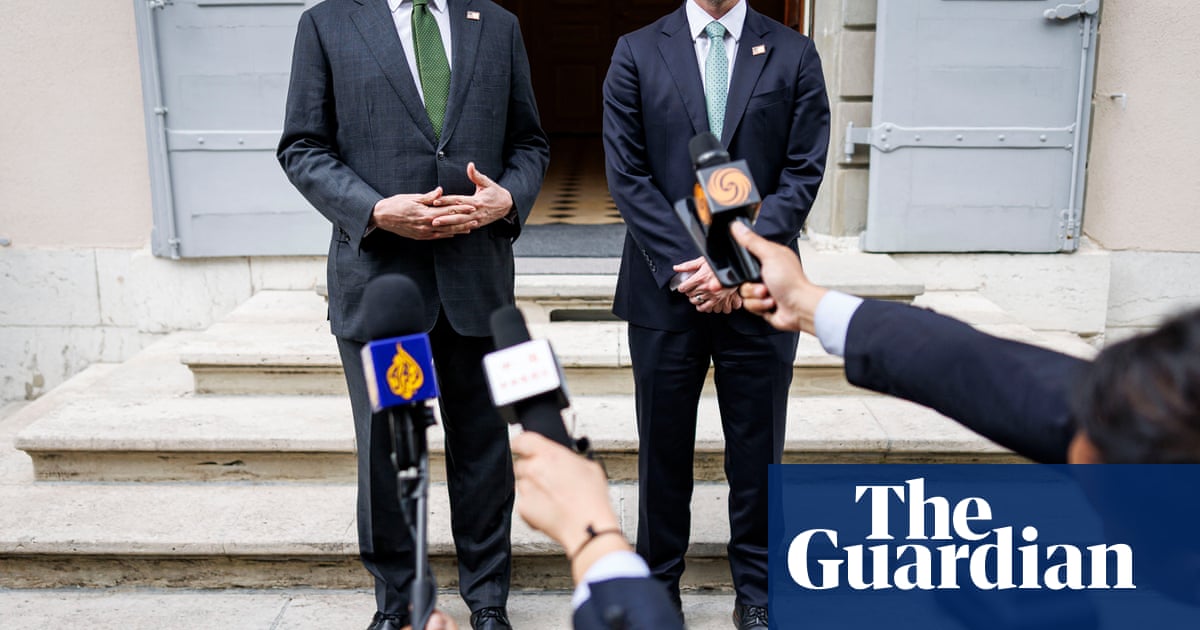With her coffee table-size electric guitar and a voice capable of belting out gospel melodies over reverberating distortion, Sister Rosetta Tharpe, AKA the godmother of rock’n’roll, carries a formidable legacy. One of the first gospel singers to find mainstream success in the 1930s, as well as an early musical influence for rockers such as Little Richard and Elvis, Tharpe was a trailblazing celebrity who has since faded in the public consciousness.
Set over a single night in 1946, George Brant’s two-hander finds Tharpe at a crossroads. Massively popular but facing increasing competition from singer Mahalia Jackson and controversy for taking faith-based music into nightclubs, 31-year-old Tharpe is rethinking her status. Enter the quivering, starstruck young singer Marie Knight, who Tharpe has plucked from obscurity and decided to take on tour with her across the segregated Southern US. Over the course of a rehearsal, Tharpe must persuade Knight to come on the road and revitalise her career in the process.

West End musical stalwart Beverley Knight plays Tharpe with aplomb, casting her as a fun-loving elder facing racist America and conservative Christians with an unshakeable sense of song. Stage newcomer Ntombizodwa Ndlovu, meanwhile, is endearing as Marie, fawning over her hero while reassessing her morals.
The music is immediate and brilliant, with Knight and Ndlovu reaching a soaring harmony on the swaggering Rock Me, rumbling into a sultry groove on Tharpe’s nightclub favourite I Want a Tall Skinny Papa and highlighting Knight’s mighty solo vocal on Didn’t It Rain. With guitarist Shirley Tetteh and pianist Liam Godwin channelling Tharpe’s bluesy feel, decades-old songs are reinvigorated.
The script, however, is a disappointment. Overly didactic, with swathes of dialogue telling the audience about Tharpe’s life story or the realities of racism but showing little, Brant misses an opportunity to meaningfully examine the difficulties of being a boundary-breaking woman of colour in the 1940s. What might it mean to believe in God when your civil rights are taken away? What motivated Tharpe to tirelessly pursue larger audiences and threaten her church-going audience?
The answers won’t be found in Marie and Rosetta. Yet, in Knight and Ndlovu’s voices we can at least find engaging emotion, bringing Tharpe’s powerful music to life once more.
-
At Rose Theatre, Kingston, London, until 24 May. Then at Wolverhampton Grand, 27–31 May and Chichester Festival Theatre 25 June to 26 July

 18 hours ago
7
18 hours ago
7













































